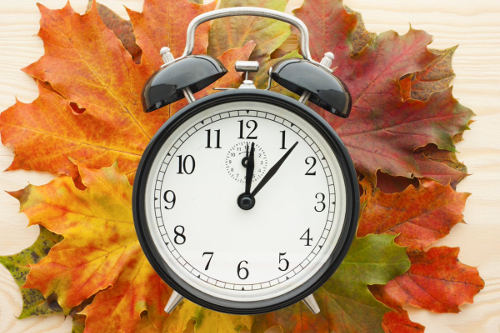 I don’t know about you, but I’m still feeling the effects of the jump forward my clocks took this past weekend with Daylight Saving Time. Since Sunday night, I’ve had a hard time falling asleep and an even harder time waking up. I’m exhausted and I’m off my game.
I don’t know about you, but I’m still feeling the effects of the jump forward my clocks took this past weekend with Daylight Saving Time. Since Sunday night, I’ve had a hard time falling asleep and an even harder time waking up. I’m exhausted and I’m off my game.
Daylight Saving Time Ruining Your Health?
I’m sure many of you can relate. Losing even an hour of sleep can have a big impact on how your body functions, and if your sleep’s been off for a few days, those issues can compound quickly. Being low on sleep doesn’t just make you tired, either; it can slow down your metabolism, boost stress, affect memory, and increase your chances of an accident. Additionally, if you’ve been working hard on an exercise program since the new year, less sleep can stymie your progress.
Why Is Sleep so Important?
During sleep, the body undergoes a number of physiological processes to recover from the long day. If you worked out, your muscle cells are being repaired. If you learned something new, your brain files it where it needs to be so it’s easier to remember. Lack of sleep cuts a number of processes short—like the sleep/HPA axis and cortisol rhythm—leading to more stress during the day and particularly the next evening.
All of these issues can have negative consequences for your health, such as depression, poor cognitive function, fatigue, and weight gain.
Here’s the Secret to Getting Back on Track
So what are you supposed to do to get back on track when it seems like a bout of insomnia is only one or two nights of bad sleep away? It can be pretty tough. After all, life certainly doesn’t slow down and elevated cortisol levels caused by one night of shortened sleep can make it even harder to sleep the next night. And the last thing you want to do is resort to sleeping pills. They’re not cheap and can have harmful side effects. There’s even the risk of your body becoming dependent on them.
Because I’m suffering from the “Daylight Saving Time blues” myself, I talked to one of my doctor colleagues, Dr. Victor Marchione, and he gave me a pretty straightforward plan of attack.
Here it is: relax, avoid mental/physical stimulation, and be specific in setting your new sleep schedule.
Drug-Free Way to Adjust Your Sleep Pattern
So first of all this means that you need to clear your schedule over the next few nights and try your hardest to have nice, relaxing evenings. (Not easy in our go-go-go world, but just do it!)
Keep your television, phone, tablet, and computer turned off and just chill out with an actual book (no Kindle; you need to avoid the light from all devices like this), a bath (try putting lavender oil in it as an extra sleep-inducer), a puzzle, or some knitting. Maybe go for a brief walk after dinner, but other than that try to keep stimulation to a minimum. Plus, you’ll need to stay away from caffeine and alcohol in the late afternoon and evening.
If your regular bedtime is 11:00 p.m., but you’ve been having trouble falling asleep at that time since Sunday, go to bed just 10 minutes earlier each night, until you’re back on schedule. If you’re really finding it impossible to fall asleep despite following the first part of this plan, consider meditation. You’d be surprised at how relaxing a simple breathing meditation can be.
These strategies should allow you to get to bed a little earlier and sleep better the next few nights. And if you’re still feeling a little off heading into the weekend, have a couple of brief afternoon naps (30-minute limit, remember) to get your body caught up! I love it when I can take “prescribed” naps.
Related:
Daylight Saving Time: How to Combat the Negative Effects
Sleep Tips to Recover from the Daylight Saving Time Change
Grogginess, Fatigue, Seasonal Depression: Surviving the End of Daylight Saving Time
Sources for Today’s Article
Bush, B. and Hudson, T., “The Role of Cortisol in Sleep,” Natural Medicine Journal, June 2010; http://www.naturalmedicinejournal.com/journal/2010-06/role-cortisol-sleep, last accessed March 13, 2017.
Leproult, R. et al., “Sleep loss results in an elevation of cortisol levels the next evening,” Sleep. 1997 Oct;20(10):865-70; https://www.ncbi.nlm.nih.gov/pubmed/9415946, last accessed March 13, 2017.
Dattilo, M., et al., “Sleep and muscle recovery: endocrinological and molecular basis for a new and promising hypothesis,” Medical Hypotheses. 2011 Aug;77(2):220-2. doi: 10.1016/j.mehy.2011.04.017. Epub 2011 May 7.
“How the brain consolidates memory during deep sleep,” ScienceDaily, April 14, 2016; https://www.sciencedaily.com/releases/2016/04/160414214830.htm, last accessed March 13, 2017.
